Does Sweating Mean You Had a Good Workout?
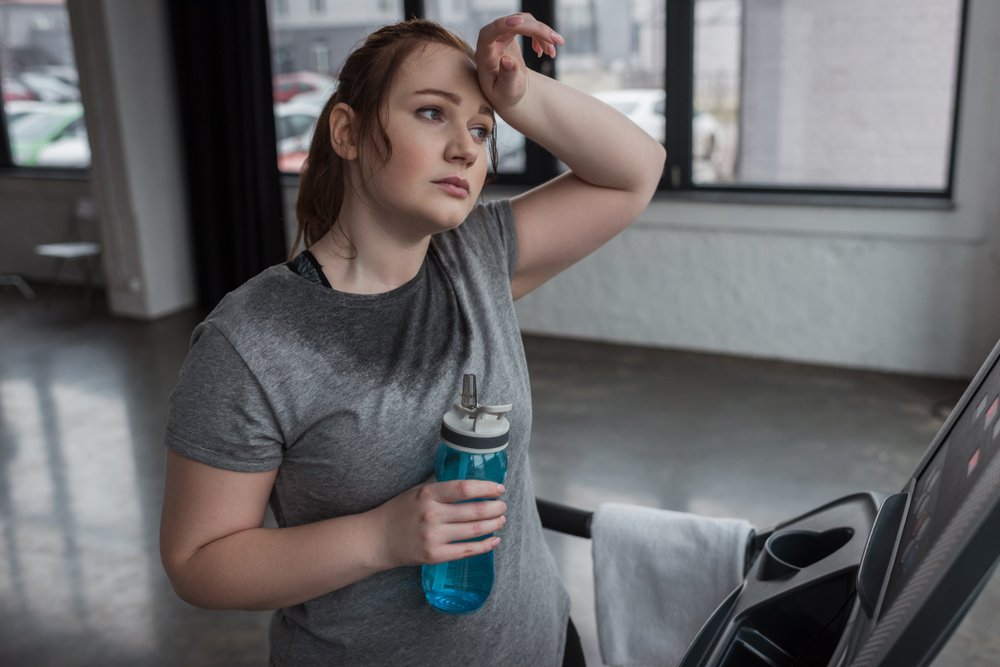
Imagine that awesome feeling you get at the end of a good workout.
The one where you’re like: Hell yeah, I just did that 💪
You feel on top of the world and super proud of yourself.
There’s just one problem…
You didn’t really sweat that much.
And in the back of your mind, some intrusive thoughts start to creep in…
If I don’t sweat during exercise, is it a waste of time?
Should I add some cardio to the end of my workout?
Maybe this wasn’t such a good workout after all?
A few seconds ago you felt so accomplished and now you’re not really sure.
So instead of calling it a day, you drop down for a few quick sets of hump the ground and jump into the air (that’s my nickname for burpees).
WHEW 🥵
That gets your heart rate up and now you’re really sweating, which means everything’s A-OK in your workout world.
Because sweating determines how good your workout was, right?
Actually…
And this might surprise you but sweating during workouts doesn’t mean it was an effective one.
So, let’s talk about why that is.
And not only that but how to measure your workouts moving forward so you can achieve your fitness goals.
What does it mean if you sweat a lot during exercise?
Not much…
Sweating is simply how your body cools itself down when it gets too hot internally.
When it comes to sweating during workouts, everyone’s different.
A simple stroll down the block might make it look like you just hopped out of the pool.
Or…
You could be the type of person who works out extremely hard–lifting heavy, huffing, and puffing.
But despite all that, you have just a single bead of sweat to show for it.
There really are just so many different factors that play into how much you sweat (i.e. your weight, age, gender, metabolism, and genetics).
Will you lose more fat if you sweat more?
Just so we’re on the same page…
Sweating during workouts absolutely.
110%.
Is for sure.
…NOT an indication you’ve had a good one or are losing more fat.
Not to digress too much but since we’re on the topic of losing fat, you do that by being in a calorie deficit.
It doesn’t matter how long your workouts last, how intense they are, or whether or not you do fasted cardio, nutrition drives your calorie deficit.
If you’re eating too much, fat loss will be like trying to read with your eyes shut…
Impossible.
So don’t think, “Great, I can just exercise my way into a calorie deficit.”
It won’t happen.
Your mentality should be this:
My calorie deficit starts on my next trip to the grocery store.
You won’t even have to stress about what to get if you just use this weight loss grocery list I made for you.
But back to our regularly scheduled programming–sweating during workouts.
Let me ask you this…
In the past, have you judged the success of your workouts based on how much you sweat?
How sore you are the next day?
Or how out of breath you were?
Now, think about this for a second.
Thoughts like:
I need to be sore.
If I didn’t sweat, this wasn’t a good workout.
I’m not out of breath, I need to do more.
^^^ All of those are feelings.
You FEEL like you have to be motivated all the time to workout.
You FEEL like your workouts have to be a certain way or else they’re ineffective.
FEEL, FEEL, FEEL.
The thing is, feelings don’t drive workout success.
Results do.
Your end goal might be to finally lose those 20 pounds you’ve always wanted, be able to do more push-ups, get your first pull-up, or maybe increase your bench press.
Those are all great goals to have but none of them can be measured by sweating during workouts, your lungs feeling like they’re on fire, or muscle soreness.
All of those are feelings, and feelings don’t produce results.
How do I know if I had a good workout then?
I’d be doing you a disservice and straight up just not telling the truth if I were to give some clear-cut, straightforward answer like, “Here are X definitive signs of a good workout.”
The truth of the matter is there’s not some telltale sign that’ll let you know if ONE specific workout was effective or not.
Remember, effectiveness is driven by results.
And one workout by itself won’t produce any meaningful results.
Rather than looking at a single workout, you want to look at your workouts over an extended period of time.
That way, you can look back and ask yourself:
Am I achieving the result I wanted?
For example, let’s say you have a goal of increasing your squat.
That’s the result you’re after.
And if that’s what you want, I’m 110% here for it, because having turkey legs like I did back in high school just is not a good look at all 😂
First things first, you can’t just wing it with your workouts.
Well, I guess you could but I can promise you, you wouldn’t be too happy with the results.
So, no, you shouldn’t be trying to “confuse” your muscles into growing by switching up your workout every single day.
That’s a myth, just like Bigfoot or the Loch Ness Monster is.
Get on a strength training plan (or create your own) to follow for the next 4-8 weeks.
The main thing you need to make sure of with your strength training plan is that you’re applying progressive overload (gradually increasing the amount of weight you lift over time).
Then, after about 2-3 months of being on your workout plan, ask yourself if you’re achieving the result you wanted.
If the answer is yes, then you know your workouts are effective.
And if the answer is no, first, be honest with yourself and take a look at whether or not you’ve been consistent.
If you’ve stayed on top of things, then it might be time to find a new approach.
At the end of the day, it’s about collecting data so you can rule out what works vs. what doesn’t.
And that’s something that sweating during workouts won’t be able to tell you.
Sweating during workouts wrap up
Next time you’re tempted to add some hump the ground and jump into the air’s to the end of your workout just because you didn’t sweat a whole lot, remember…
Sweating during workouts doesn’t mean anything regarding workout effectiveness.
A single workout can’t tell you a whole lot.
Instead, focus on the results your workouts produce over an extended period of time (i.e. over the next 2-3 months).
That’ll show you how effective they are.
Sweating during workouts FAQs
Is sweating during exercise a sign of weight loss?
Signs you’re in a calorie deficit (the one thing you need for weight loss) include:
- The scale going down
- Losing inches when you take your measurements
- Looking leaner in the mirror or through progress pictures
Notice how sweating during workouts isn’t on the list.
I should point out that after an extra sweaty workout, you might see a drop in the scale.
But that’s just water weight and as soon as you rehydrate, you’ll gain back the weight you lost.
That’s why it’s important to understand the difference between weight loss and fat loss.
Your scale weight will fluctuate for a variety of reasons, while fat loss is how you improve body composition (i.e. how lean you look in the mirror, how much muscle definition you have).
Do you sweat more the fitter you are?
The more fit you get, the harder you’re able to work.
Having a higher work rate generates more heat, so your body cools itself down by sweating during workouts more.
More on this in the question below this one…
Am I out of shape if I sweat easily?
You can think of it like this…
Let’s say you have someone who’s more fit and someone who’s less fit doing the same exact workout and going the same exact pace.
All things being equal, the less fit person will experience sweating during workouts at a higher rate than the person who’s more fit because their body isn’t as conditioned, meaning they’ll have to work harder.

What's up?
I’m Chad, I’m happy you’re here! I’m a certified personal trainer and my goal is to help you form practical, sustainable habits that lead to lifelong fitness results. If you want to lose fat, build muscle, and live a healthier, happier life then you’re right where you need to be. 💪🏾
Free resources
⬇⬇⬇


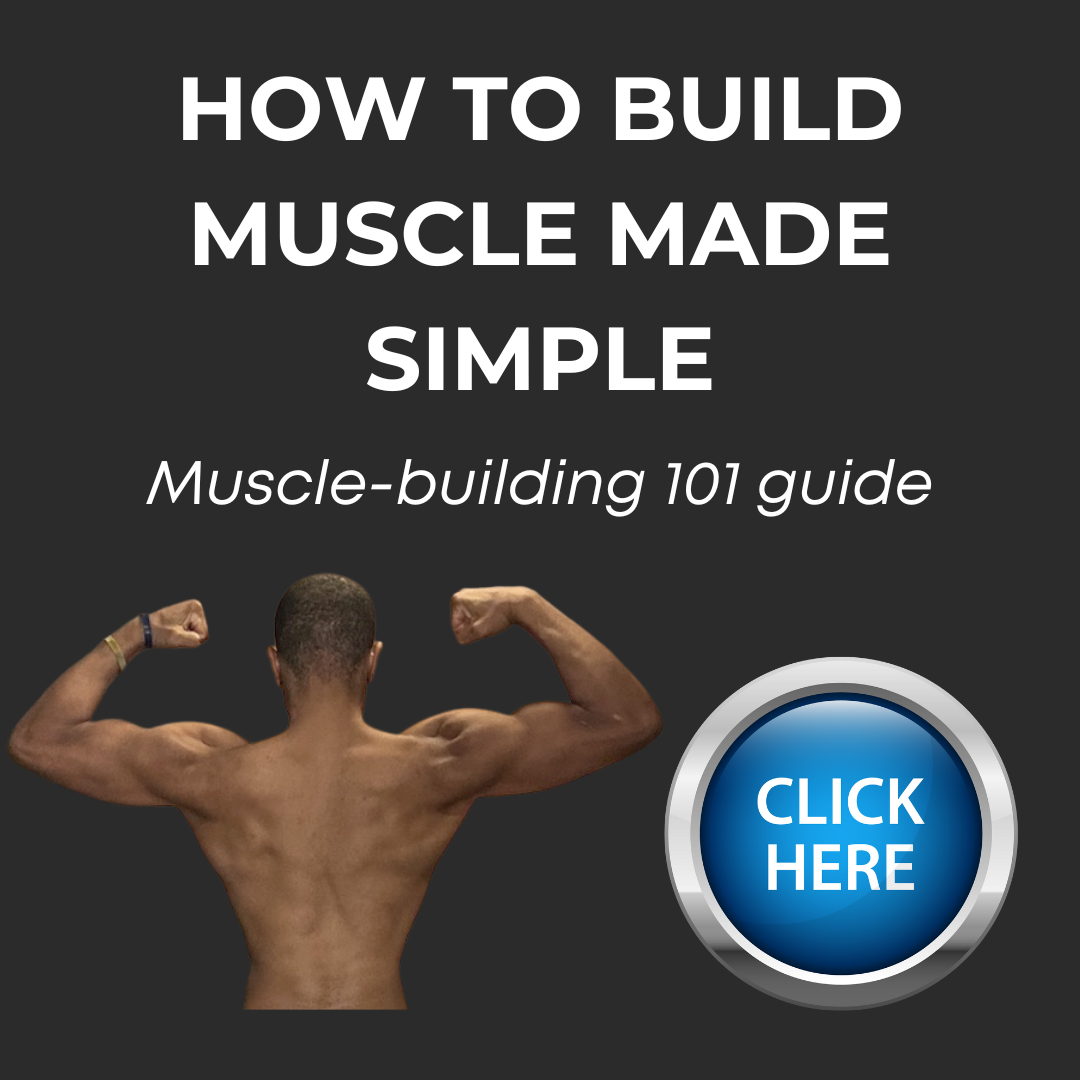
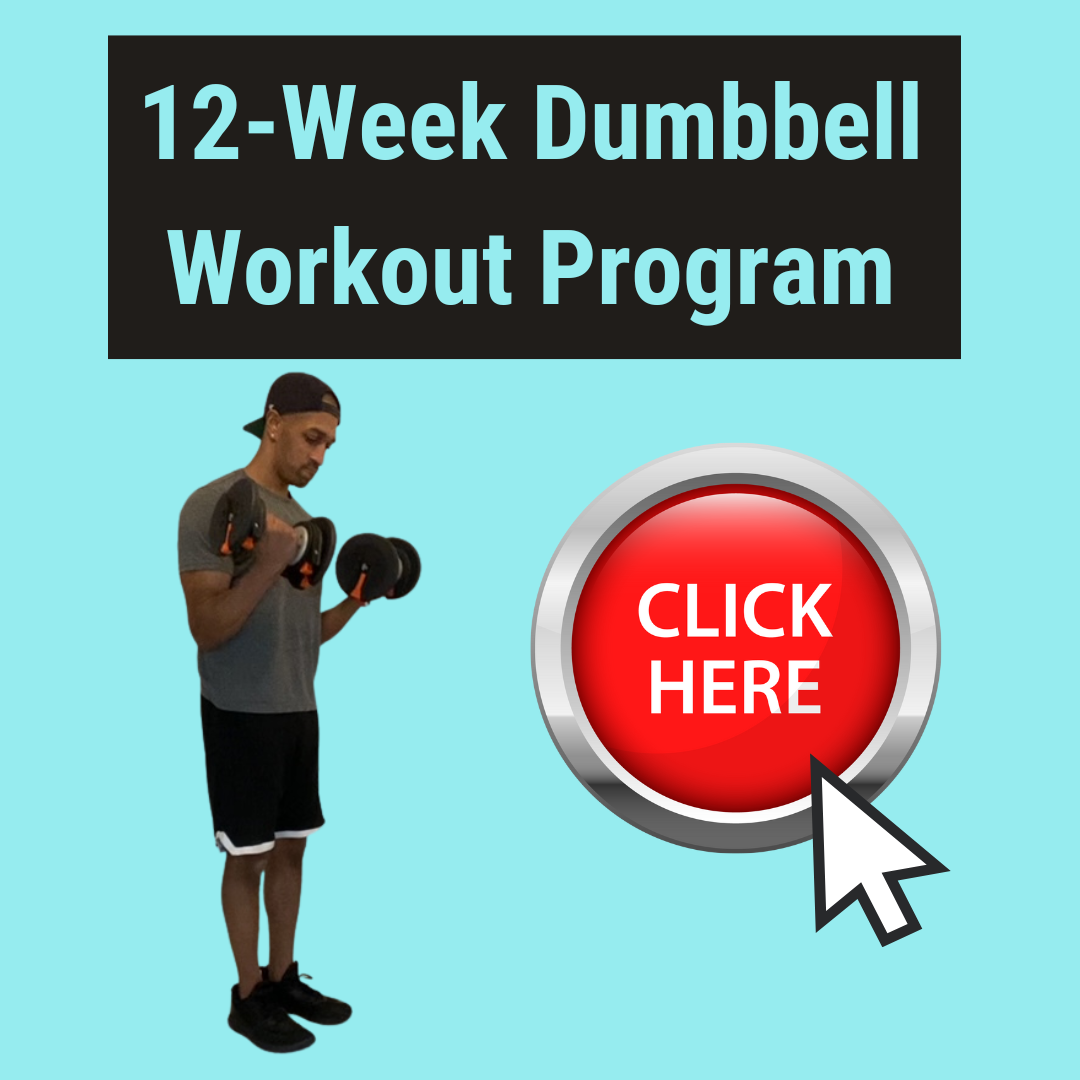


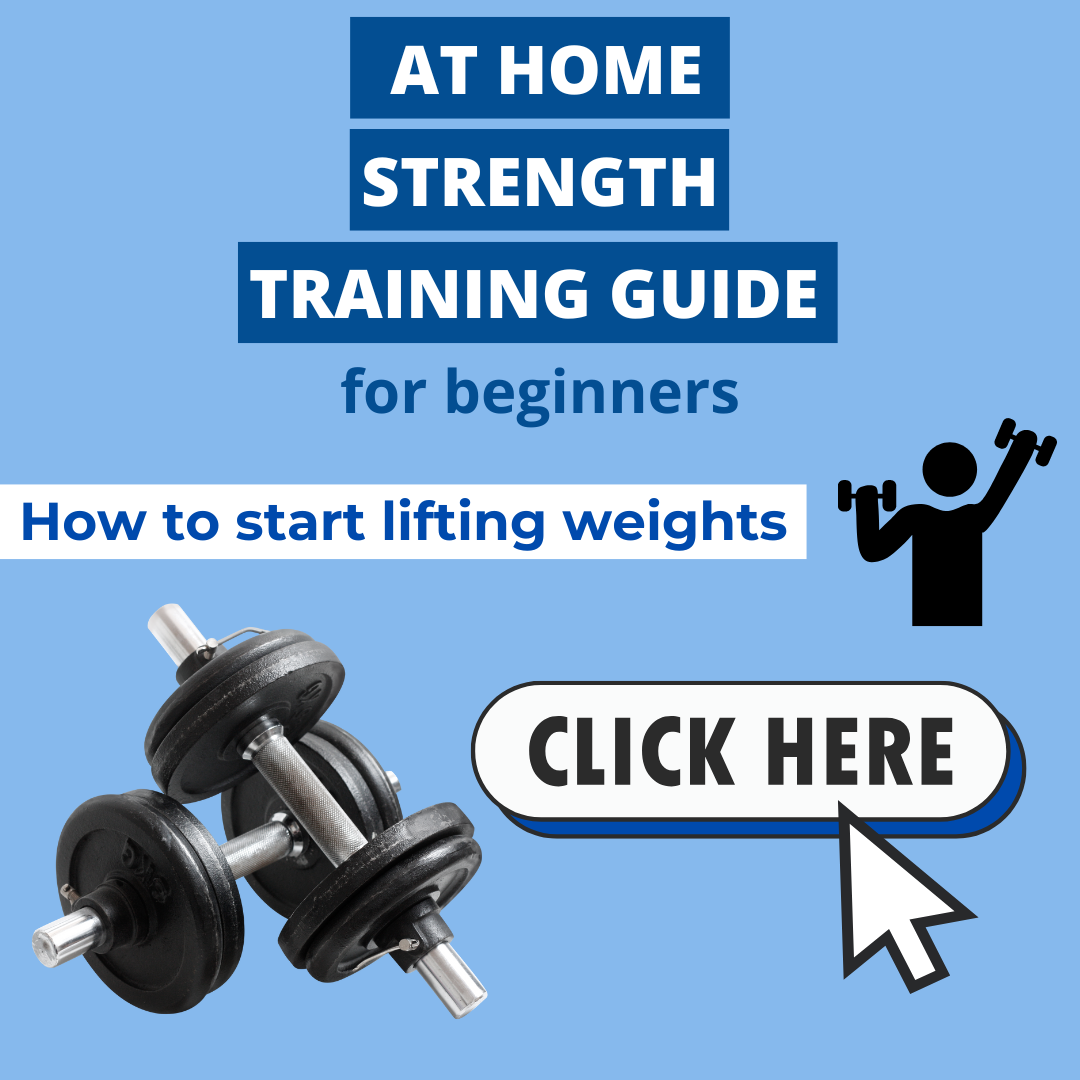
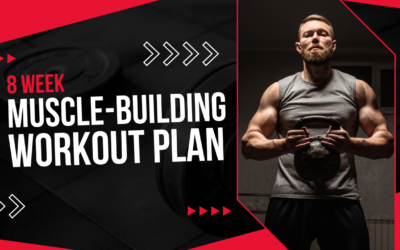
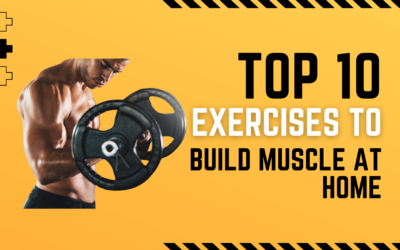
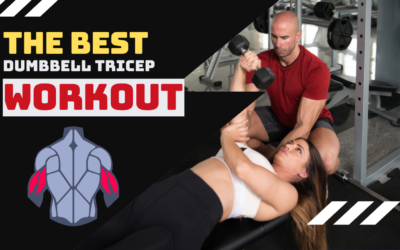
0 Comments